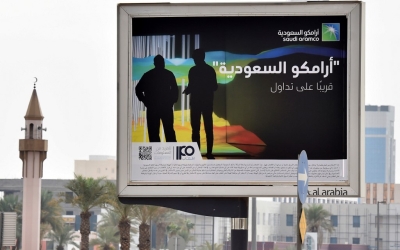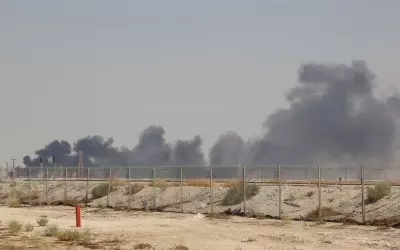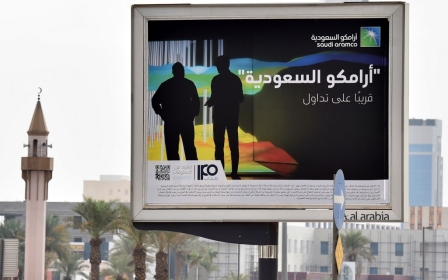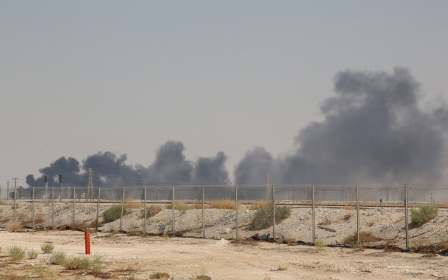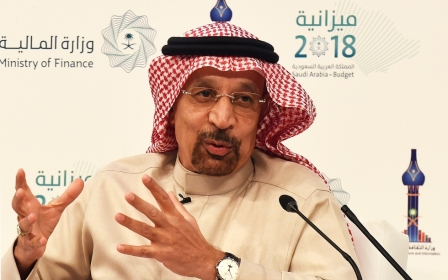Aramco dwarfs Saudi stock exchange as it hits crown prince's $2 trillion target
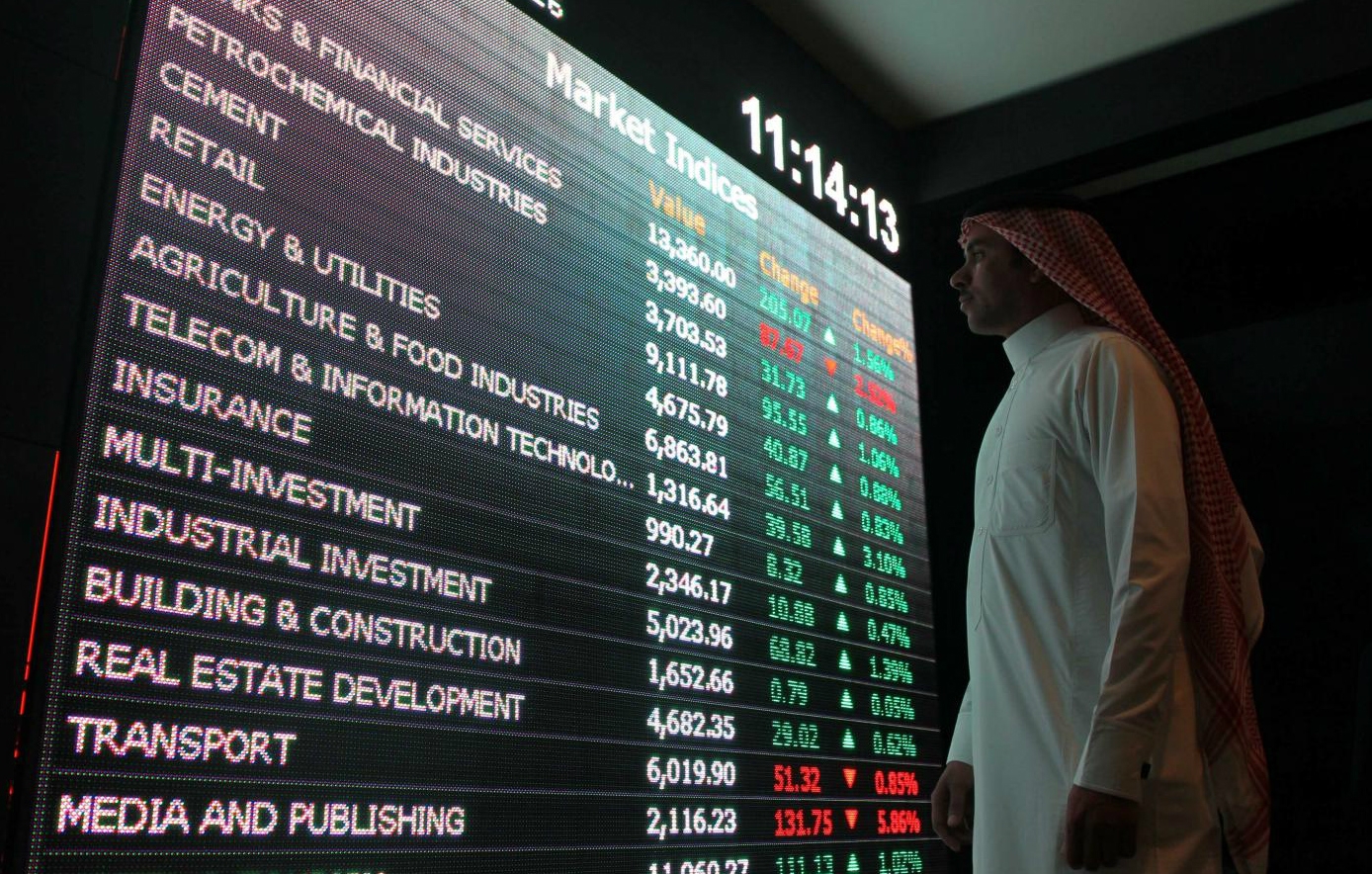
Saudi Aramco hit the $2tn target sought by Saudi Crown Prince Mohammed bin Salman on Thursday as its shares clocked up a second day of gains following the world's largest initial public offering (IPO).
The oil giant is so big that it easily dwarfs the rest of the companies in the Saudi market, which have a combined value of about $500bn.
Adding in Aramco, the kingdom’s bourse is now the world’s ninth-biggest stock market, overtaking India and closing in on Germany and Canada.
The Saudi crown prince has made Aramco's IPO the centrepiece of his vision of diversifying the kingdom's economy away from its dependence on oil by using the $25.6bn raised to develop other sectors.
But that figure is well below his plan in 2016 to raise as much as $100bn via a blockbuster international and domestic listing.
Riyadh scaled back its plans after overseas investors baulked at the proposed valuation and only 1.5 percent of Aramco shares were listed on Wednesday, a tiny free float for such a large company.
Some 13.7bn riyal worth of Aramco shares had been traded by 10:18 GMT on Thursday, with around 370m shares exchanging hands, Refinitiv data showed.
That made up nearly 90 percent of the total turnover of the whole Riyadh market, which was 15.3bn riyals.
Doubts over value
Aramco, whose shares gained the maximum 10 percent allowed by the Riyadh exchange on their first day of trading, hit 38.7 riyals ($10.32) on Thursday, lifting its market value above $2 trillion. The shares were trading at 37.10 riyals at 10:26 GMT, a rise of 5.5 percent from Wednesday's close.
While the rise has been hailed by the Saudi government as a vindication of it long-sought valuation, some analysts say it is worth less than the current price.
The IPO was said to have relied on some of the kingdom’s richest families, who had members detained in a hotel during a so-called crackdown on corruption in 2017, and also on cash from neighbouring allies, such as the sovereign wealth funds of Kuwait and Abu Dhabi.
"Initial price action has validated our thesis that Aramco discounted its IPO price to leave upside on the table and allow regional investors to benefit from the listing of its crown jewel," Zachary Cefaratti, CEO of Dubai-based Dalma Capital, told the Reuters news agency.
"The average institutional investor received less than one sixth of the shares they bid for in the IPO, and have had to buy shares on the open market."
'Gradually running out of money'
Despite its almost unimaginable oil wealth, Saudi Arabia's finances have sagged along with the price of crude, causing its budget deficit to balloon.
It still has around $500bn in fiscal reserves run by the country's central bank and some $250bn managed by the public investment fund (PIF), the kingdom's main investment vehicle.
"It's a fact that Saudi Arabia is gradually running out of money," General David Petraeus, who is currently chair of the KKR Global Institute, said in a November television interview in Abu Dhabi.
'Saudi foreign policy choices and repression of political dissent have likely dampened investor sentiment'
- Karen Young, American Enterprise Institute
"The bottom line is that they need the money, they need that outside investment that is crucial to delivering 'Vision 2030'."
However, despite Saudi officials pulling out all the stops to ensure that the stock traded higher, the offering was largely rejected by international investors.
"The regional political risk climate, Saudi foreign policy choices and repression of political dissent have all likely dampened investor sentiment," Karen Young from the American Enterprise Institute told the AFP news agency.
Riyadh has also faced criticism over the murder of journalist Jamal Khashoggi inside the kingdom's consulate in Istanbul in 2018, which the CIA has blamed on the Saudi crown prince, as well an ongoing crackdown on activists.
Increased tensions between Saudi Arabia and arch-rival Iran after a string of attacks on oil tankers and missile strikes on Aramco oil infrastructure have also cast a pall.
'Ultimate cash cow'
Aramco is a notoriously secretive company, but it was required to lift the lid on its operations in the IPO prospectus, which listed its risks and strengths.
"I imagine that Aramco may have to go further in terms of transparency though if a successful domestic launch encourages resumed plans for an international [IPO]," Neil Partrick, a London-based Middle East analyst, told AFP.
In recent years, the world's most profitable company increased spending on research and development as most of its competitors scaled back.
But this may hold less appeal for investors as profits slip. In the first nine months of this year, Aramco said its net profit dropped 18 percent to $68.2bn.
"By taking Aramco public, Riyadh risks disrupting the formula that's produced its ultimate cash cow," the Energy Intelligence group said in a report.
Middle East Eye delivers independent and unrivalled coverage and analysis of the Middle East, North Africa and beyond. To learn more about republishing this content and the associated fees, please fill out this form. More about MEE can be found here.


